9 Eco-friendly Gardening Tips to Transform Your Backyard into an Oasis
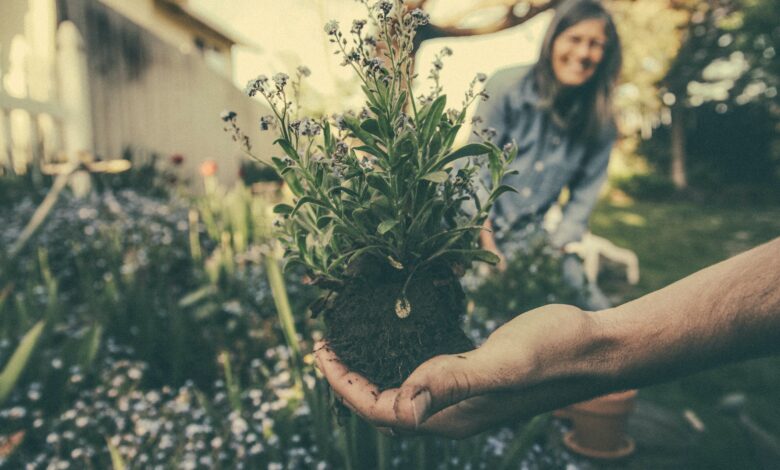
Making your backyard greener and more sustainable is now easier than ever.
In an era defined by environmental concerns and a growing desire to reduce our carbon footprint, eco-friendly gardening has emerged as a vital practice for individuals and communities alike. This sustainable approach to gardening focuses on creating and maintaining green spaces that minimize harm to the environment while nurturing natural ecosystems.
Here are the steps:
1. Go Organic for Sustainable Gardening
Embracing organic practices is a fundamental aspect of sustainable gardening. Reducing the use of chemicals in your garden not only benefits the environment but also proves to be a more economical choice. This becomes even more crucial when you’re growing food for your family. To begin, focus on the foundation by cultivating nutrient-rich soil and incorporating natural compost as an amendment. When faced with insect pests or plant diseases in your garden, opt for organic remedies to address them.
2. Mulch Your Landscape
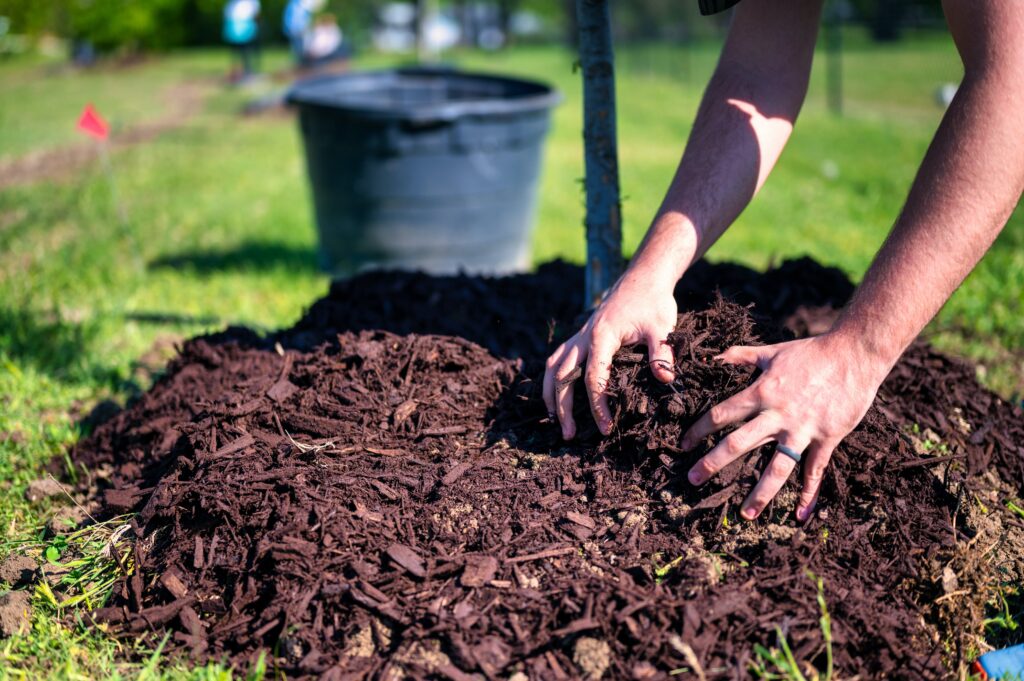
Mulching serves a dual purpose in your garden by effectively deterring the growth of weeds while retaining essential moisture in the soil. This is of particular significance in regions where water usage is regulated. Apply a 2 to 3-inch layer of your preferred mulch around your garden beds and the base of landscape plants. Sustainable gardening offers a variety of mulch options, including shredded bark, cocoa bean hulls, pine needles, grass clippings, and coir, which are derived from coconut hulls.
3. Plant Natives
Understanding the principles of cultivating a sustainable garden involves selecting the appropriate plant species. Sustainable gardens feature plants that are native to your specific geographical area, commonly referred to as indigenous or native plants. These native varieties demand less effort, typically necessitate reduced watering, and flourish more robustly compared to other perennial species.
Furthermore, native plant species play a pivotal role in supporting the native insect and bird populations by providing essential sources of food and shelter.
4. Grow Your Own Food
Cultivating sustainable vegetables, fruits, and herbs offers a gratifying, straightforward, and delectable experience. Moreover, growing your food is a fundamental component of embracing a sustainable lifestyle. To establish a flourishing and sustainable vegetable garden, it is advisable to adopt intensive and seasonal planting practices. Certain crops, such as leafy greens and lettuce, thrive during the spring but may wither under the scorching summer temperatures.
To optimize your garden’s productivity, consider interplanting these beds with warm-weather crops like tomatoes and peppers. As temperatures gradually cool down in the autumn, you can once again sow cool-weather crops, thus deriving three seasons of harvest from the same area.
5. Save Seeds
After the growing season, when your annual flowers have produced seeds, gather the dried seed heads and keep them in a dry storage space throughout the winter. This practice eliminates the necessity of purchasing additional seeds for your garden next spring. You can apply this method to flowers like marigolds, sunflowers, and morning glories.
6. Start Composting
You can easily produce compost at home by incorporating kitchen scraps, old grass clippings, cardboard, and woody stems. The key to producing high-quality compost lies in achieving the right balance between green and brown materials, ensuring a blend of nitrogen and carbon-rich components. Rather than sending your waste to a landfill, repurpose it to support the health and vitality of your plants.
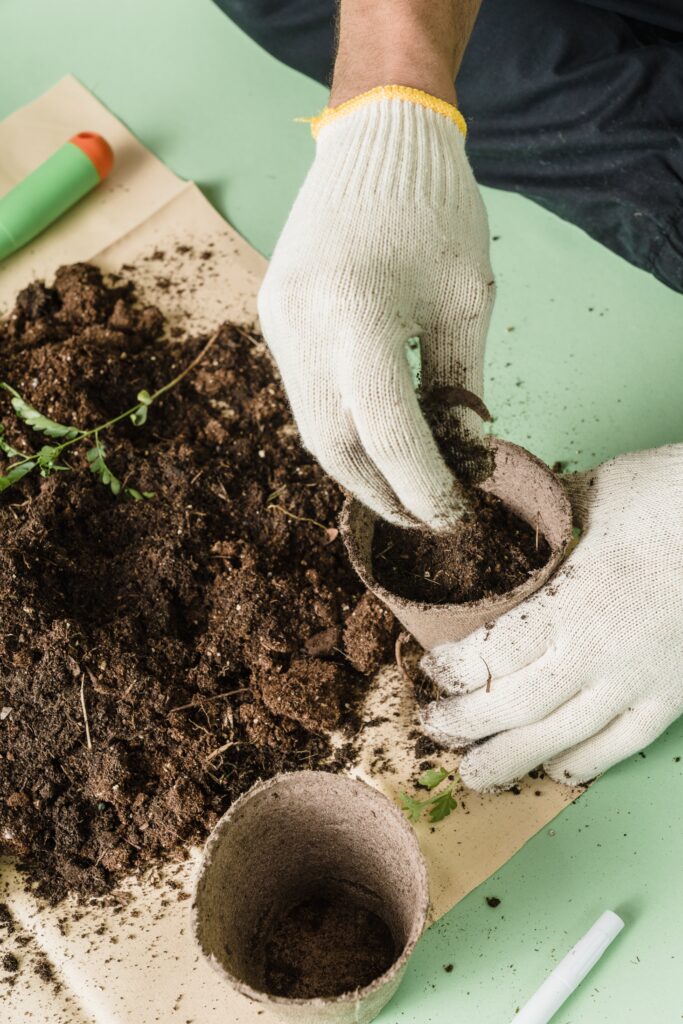
For instance, consider the benefits of banana peels. These peels are abundant in potassium, a nutrient known for its advantages for both human bodies and plants like roses, peppers, or chili plants. A simple way to harness this potential is by placing a few banana peels in a reused sauce jar and filling it with water. Let it soak for a few weeks, and you’ll have a nutrient-rich liquid to use in your next plant feed. Afterward, add the banana peels to your compost pile, making the entire process remarkably straightforward.
Sustainable lifestyle blogger Soumya Manthena shared an amazing idea of composting in a live session with The Disposal Company.
7. Use recycled materials
To enhance your eco-conscious practices in the garden, consider employing recycled or repurposed materials. Instead of purchasing new pots, consider utilizing old buckets or containers that might otherwise end up discarded. The possibilities for repurposing materials in your garden are abundant; you can transform plastic bottles into seed trays or bird feeders, and opt for newspaper or cardboard as weed barriers instead of using plastic.
8. Collect rainwater
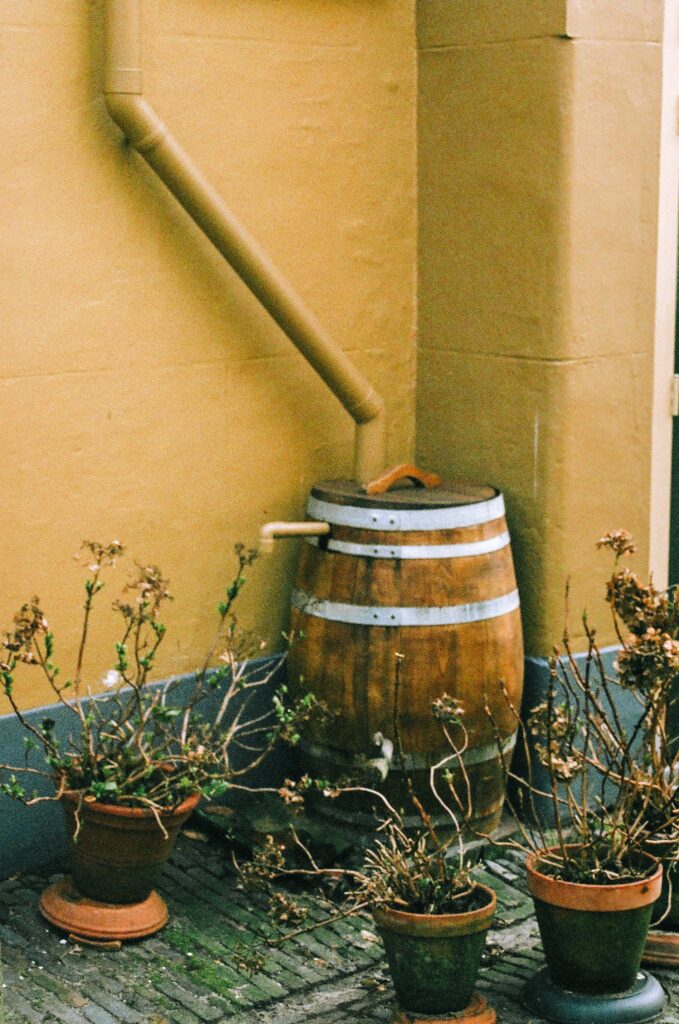
Rainwater proves to be a superior choice for our plants due to its lower pH compared to hose or tap water. It boasts higher nitrate content, which fosters plant growth and contains more oxygen, promoting overall plant health. Water butts serve as an excellent means to collect rainwater for your plants. Numerous local councils offer subsidized water butt programs, enabling gardeners to conserve water and cut down on their metered water expenses. To harness rainwater from the natural environment for your plants, set up a rain barrel at the bottom of one or several downspouts.
9. Mow with an Electric or Manual Mower
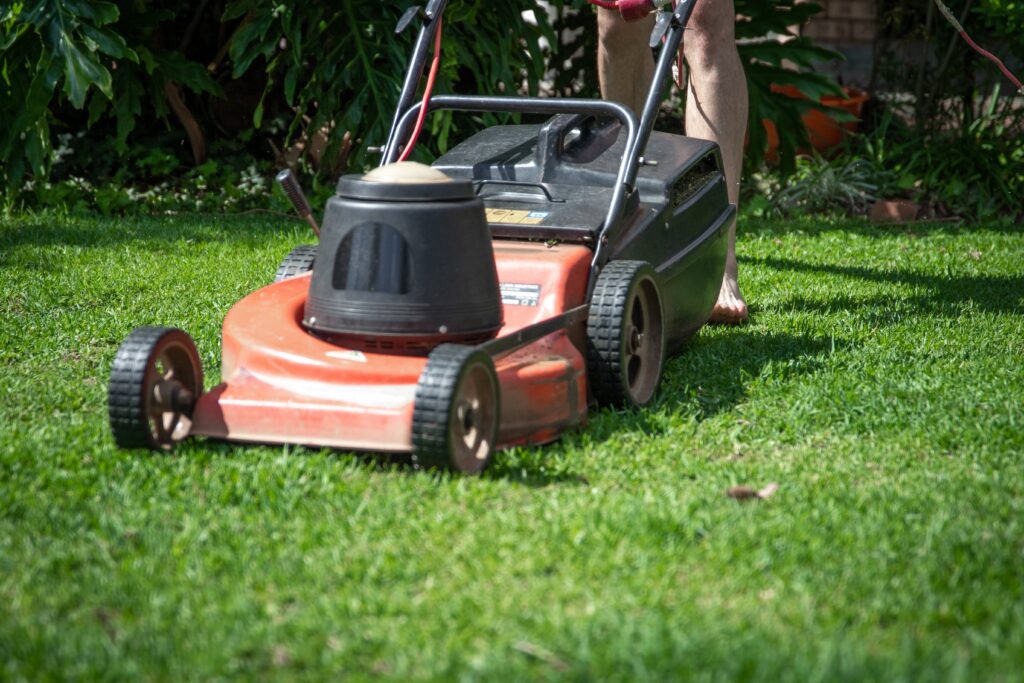
Employing a gas-powered lawnmower contributes to air pollution, and this impact can accumulate significantly when mowing every week during the spring. If you aim to diminish your environmental footprint, contemplate utilizing manually operated lawn-care tools or opt for electric mowers, trimmers, and blowers.
Conclusion
Eco-friendly gardening is not only a means of beautifying our surroundings; it is a way to harmonize our lives with nature, reduce our environmental impact, and create healthier, more sustainable ecosystems. It’s a step toward a greener, more sustainable future where gardens become not only places of beauty but also sanctuaries for the planet.
The Disposal Company is leading the way in climate action in India, providing brands with a revolutionary platform that allows them to achieve plastic neutrality and carbon neutrality. Click here to discover how.




